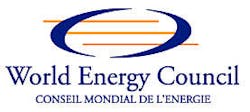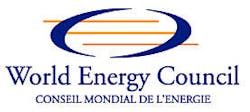WEC stresses deepwater, social responsibility trends
Oil and gas companies increasingly are adopting comprehensive programs of social responsibility in their operations worldwide.
Such programs are now seen as essential both to good relations in the areas in which industry operates and also to business success.
This trend has evolved to the extent that there is accelerating momentum within the industry to standardize social responsibility programs through the adoption of industry best-practices standards.
This theme and the role deepwater basins will play in filling growing oil demand emerged as major trends in sessions at the World Energy Council's 18th World Energy Congress in Buenos Aires last week.
Corporate responsibility
Pierce Riemer, director general of the World Petroleum Congress, acknowl edged the growing role of corporate responsibility initiatives in oil and gas operations embodied within a collaborative effort of WPC and the International Petroleum Industry Environmental Conservation Association (IPIECA). The national memberships of the two associations represent over 90% of the world's oil and gas production and consumption.
Riemer noted that the international petroleum industry collectively is striving to address society's needs by helping to develop solutions and responses that are socially, economically, and environmentally acceptable:
- The development of partnerships with key United Nations bodies, nongovernmental organizations, and other industry associations.
- Searches for cost-effective solutions based on sound science.
- Consultations conducted with key stakeholders.
These efforts are being undertaken against a backdrop of changing roles of government, business, and the public with regard to oil and gas operations.
Governments are concentrating more on setting frameworks and policies rather than detailed planning and implementation, Riemer noted. At the same time, the public often lacks confidence that governments can provide solutions and are distrustful of industry appearing to implement government policies in a nonregulated environment.
So it follows that the public is playing a growing role in the decision-making processes involving oil and gas operations. The widespread perception that international oil and gas corporations have growing clout-even to the point of being above the law-fosters a growing expectation that oil and gas companies also participate in the development of solutions to social issues, Riemer said.
The primary areas of social responsibility focus then for oil and gas companies, Riemer noted, should be:
- Developing and implementing effective management systems and guidelines and then sharing them.
- Developing clean, efficient technologies, such as low-emissions combustion systems and heliportable seismic equipment and drilling rigs.
- Promoting technology transfer and local training.
- Improving air quality, along the lines of the Auto-Oil initiatives in the developed countries.
- Building a sustainable oil spill contingency preparedness and response capability, such as that fostered by IPIECA's Oil Spill Working Group.
- Developing options to help mitigate the risks of climate change at a lower cost to society. Riemer cited in particular the enormous potential of carbon sequestration in industry operations helping to allay concerns over the prospect of catastrophic climate change.
- Operating responsibly in sensitive environments by relying on such tools as the Interactive Map Service, an online biodiversity geographic information system, for oil spill contingency plans, environmental impact studies, and land use planning.
- Promoting greater stakeholder dialogues through initiatives such as social impact assessment studies.
The promotion of excellence in social responsibility performance by oil and gas companies has prompted WPC to launch as a theme for the September 2002 World Petroleum Congress in Rio de Janeiro: The Petroleum Industry: Excellence and Responsibility in Serving Society.
World Bank role
Multilateral lending agencies such as the World Bank will play an increasingly important role in helping to standardize the best practices of oil and gas companies when it comes to social responsibility, according to Eleodoro Mayorga Alba, head of the World Bank's Department of Oil, Gas, and Chemicals.
This is especially true regarding the interaction between oil and gas industry operations and affected indigenous peoples.
Mayorga emphasized the growing role of indigenous peoples in the oil and gas project decision-making process, claiming that the industry is "way ahead" of other industries in this regard.
He cited a string of case studies from northern Canada, Papua New Guinea, Nigeria, and the High Amazon that provide an overview of lessons learned and examples of best practices in social responsibility involving indigenous peoples.
While noting that such best practices have been largely the exclusive province of major oil companies, Mayorga advised, "These practices should become widespread, especially among the smaller companies."
He stressed the importance of early consultation of indigenous peoples in project planning, noting that, "Explo ration campaigns in licensed blocks in Ecuador, Colombia, and Peru are suffering costly delays because early con sultations were not carried out in time."
Mayorga also recommended that oil and gas companies act to ensure that indigenous people share directly in the economic benefits from oil operations, because, "in most countries, they don't own the resources and have no direct rights."
Delays in land titling are a serious constraint in this regard, and oil companies should support the trend in inter national law to recognize that traditional occupancy is sufficient evi dence of property rights, he said.
Oil companies also have a similar responsibility with regard to governance and human rights, Mayorga said, noting that particular care should be taken to ensure that security arrangements with the government do not lead to human rights abuses.
And oil companies have an obligation to make private social investments on behalf of indigenous peoples affected by their operations, focusing on areas such as health, education, infrastructure, and economic self-sufficiency projects.
Such best practices are gaining ascendancy in industry operations as agencies such as the World Bank support new initiatives to "mainstream" the industry's best practices. Mayorga noted that the World Bank has committed additional funding to disseminate these emerging best practices of oil and gas companies worldwide.
Council study
To further emphasize the interests of energy consumers, Argentina President Fernando de la Rùa and other speakers - Congress Chairman Jim Adam and out-going WEC president Don Jordan - who opened the congress Oct. 21 also stressed the need to continue energy's role in improving the quality of human life.
They also released the results of a study the council conducted that evaluated the effectiveness of energy-efficiency policies, the use of energy-efficiency indicators for monitoring, and the link between the various measures and the influence of policy context.
The study findings confirmed that, since 1990 energy con sump tion per unit of gross domestic product at the world level has decreased by about 2%/year.
Half of that reduction, however, came from a more rapid economic growth in regions with the lowest energy intensity, the study said. Actual progress in energy productivity was only 1%/year-less than progress during 1980-90.
The study found that regulatory instruments are efficient and fairly cheap to implement because they do not provoke negative reactions. A first important conclusion, demonstrated by the introduction of thermal building standards in many countries, is that regulation should not result in an in crease in the overall cost of an energy service to the consumer.
The study said the main long-term drivers of energy efficiency policies are global warming and the expected depletion of oil and gas resources. In developing countries, energy efficiency is also a way to alleviate investment constraints on the supply side, it said.
Deepwater key to supply
Concerns about actual future supplies was addressed at two first-day WEC sessions.
Anticipated growth in oil demand will buoy the oil industry for the foreseeable future, and deep offshore basins will play a major role in supplying oil for that future.
Speaking for the Organization of Arab Petroleum Exporting Countries, J. Jamali said the greatest challenge in studying scenarios of anticipated growth in oil consumption is evaluating the adequacy of the resource base to sustain demand.
Alain DeLaytermoz of TotalFinaElf SA and Jacqueline LeCourtier of the Institut Français du Pètrole, said, "Setting aside extra-heavy oil and bitumen,...deep offshore oil appears today to be the only major potential resource in the class of conventional crudes, outside the Middle East and Caspian zone."
Exaggerated forecasts
Jamali said that 1970s assessments regarding movement toward scarcity of conventional hydrocarbons did not play out as envisioned. Many believe today that technological and economic developments will cause estimates of ultimate recoverable resources to continue to increase.
The OAPEC Secretariat said proven world reserves increased to 1.035 trillion bbl by 2000 from 1.02 trillion bbl in 1990 and from 550 billion bbl in 1970. Factoring in production over the same 30-year period reveals net additions to reserves of about 1.187 trillion bbl.
Jamali said that too often scenarios of reserves replacement neglect to account for reserves accessible by enhanced oil recovery and for undiscovered reserves. "Most experts believe that at least an additional 10-15% of discovered oil in place can be produced with EOR techniques, if costs can be justified."
Adding past cumulative production, proven reserves, oil to be discovered, and oil to be produced with EOR, ultimate recoverable resources will "reach a minimum of 2.99 trillion bbl at the end of 2000," Jamali said.
Moreover, he said geologists who believe production of the world's conventional oil will begin to decline in the first decade of this century "do not consider developments or breakthroughs in technology that may improve the recovery rate or additions to oil re serves."
Deepwater oil
Ultimate deep offshore oil resources could be 80-150 billion bbl, said DeLaytermoz and LeCourtier.
The authors contrast the availability of deep offshore oil with the massive amounts of unconventional or heavy oil reserves. To produce significant amounts of heavy oil, two major difficulties must be resolved:
- Hot production schemes, primarily steam injection, require "enormous quantities of medium pressure stream." As much as 1-3 bbl of vaporized water are required to produce 1 bbl of extraheavy oil or bitumen, they said. Gen er- ating such amounts of steam not only entails significant energy con sumption but also will result in the production of large volumes of carbon dioxide.
- For both hot and cold production schemes, the question of "production value enhancement" remains. "In effect these extra-heavy, viscous, asphaltene-rich, and sulfur or heavy metal-laden products pose problems of transportation and are marketed with a discount."
The authors estimate that, within 20-30 years, the accumulated discovered reserves in deepwater areas will be about 120-150 billion boe, with oil accounting for 80-100 billion boe of that total. Thus "about 55-75 billion boe of deep offshore oil would remain to be discovered."
That is modest compared with heavy oil reserves, but among conventional reserves it ranks second only to those in the Middle East. Remaining reserves, they said, are in small or very small reservoirs, "with the exception of the Caspian Sea area."
The authors concluded that, absent validation of novel geological concepts under study, deep and ultradeep offshore might not guarantee long-term supplies but "will bridge the gap as conventional resources are progressively exhausted, until technology developments make unconventional production a technically attractive, economically viable, and environmentally sound alternative."

